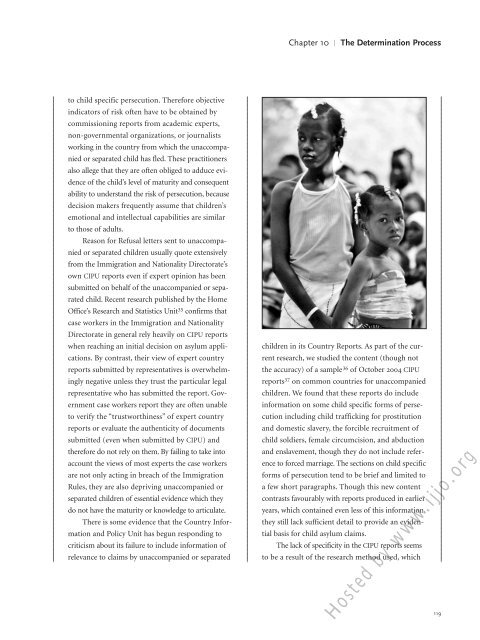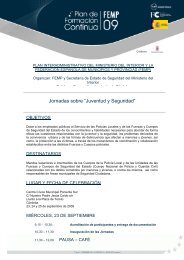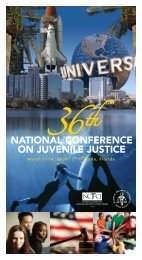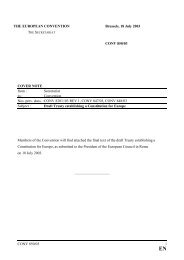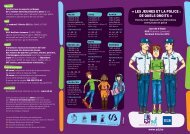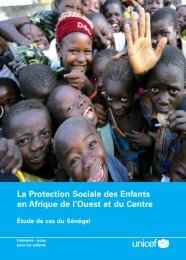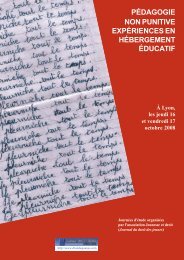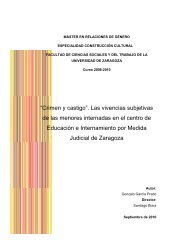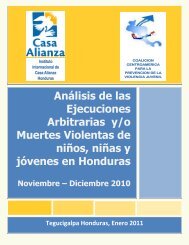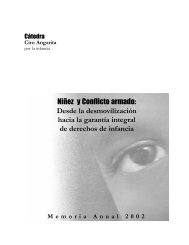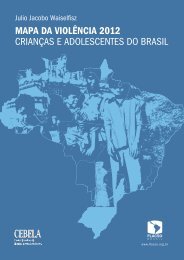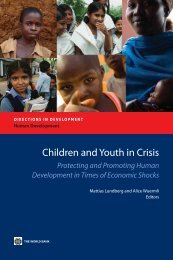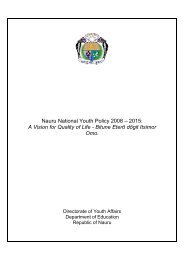Hosted by www.ijjo.org
Hosted by www.ijjo.org
Hosted by www.ijjo.org
Create successful ePaper yourself
Turn your PDF publications into a flip-book with our unique Google optimized e-Paper software.
Chapter 10 | The Determination Process<br />
to child specific persecution. Therefore objective<br />
indicators of risk often have to be obtained <strong>by</strong><br />
commissioning reports from academic experts,<br />
non-governmental <strong>org</strong>anizations, or journalists<br />
working in the country from which the unaccompanied<br />
or separated child has fled. These practitioners<br />
also allege that they are often obliged to adduce evidence<br />
of the child’s level of maturity and consequent<br />
ability to understand the risk of persecution, because<br />
decision makers frequently assume that children’s<br />
emotional and intellectual capabilities are similar<br />
to those of adults.<br />
Reason for Refusal letters sent to unaccompanied<br />
or separated children usually quote extensively<br />
from the Immigration and Nationality Directorate’s<br />
own CIPU reports even if expert opinion has been<br />
submitted on behalf of the unaccompanied or separated<br />
child. Recent research published <strong>by</strong> the Home<br />
Office’s Research and Statistics Unit 35 confirms that<br />
case workers in the Immigration and Nationality<br />
Directorate in general rely heavily on CIPU reports<br />
when reaching an initial decision on asylum applications.<br />
By contrast, their view of expert country<br />
reports submitted <strong>by</strong> representatives is overwhelmingly<br />
negative unless they trust the particular legal<br />
representative who has submitted the report. Government<br />
case workers report they are often unable<br />
to verify the “trustworthiness” of expert country<br />
reports or evaluate the authenticity of documents<br />
submitted (even when submitted <strong>by</strong> CIPU) and<br />
therefore do not rely on them. By failing to take into<br />
account the views of most experts the case workers<br />
are not only acting in breach of the Immigration<br />
Rules, they are also depriving unaccompanied or<br />
separated children of essential evidence which they<br />
do not have the maturity or knowledge to articulate.<br />
There is some evidence that the Country Information<br />
and Policy Unit has begun responding to<br />
criticism about its failure to include information of<br />
relevance to claims <strong>by</strong> unaccompanied or separated<br />
children in its Country Reports. As part of the current<br />
research, we studied the content (though not<br />
the accuracy) of a sample 36 of October 2004 CIPU<br />
reports 37 on common countries for unaccompanied<br />
children. We found that these reports do include<br />
information on some child specific forms of persecution<br />
including child trafficking for prostitution<br />
and domestic slavery, the forcible recruitment of<br />
child soldiers, female circumcision, and abduction<br />
and enslavement, though they do not include reference<br />
to forced marriage. The sections on child specific<br />
forms of persecution tend to be brief and limited to<br />
a few short paragraphs. Though this new content<br />
contrasts favourably with reports produced in earlier<br />
years, which contained even less of this information,<br />
they still lack sufficient detail to provide an evidential<br />
basis for child asylum claims.<br />
The lack of specificity in the CIPU reports seems<br />
to be a result of the research method used, which<br />
<strong>Hosted</strong> <strong>by</strong> <strong>www</strong>.<strong>ijjo</strong>.<strong>org</strong><br />
119


